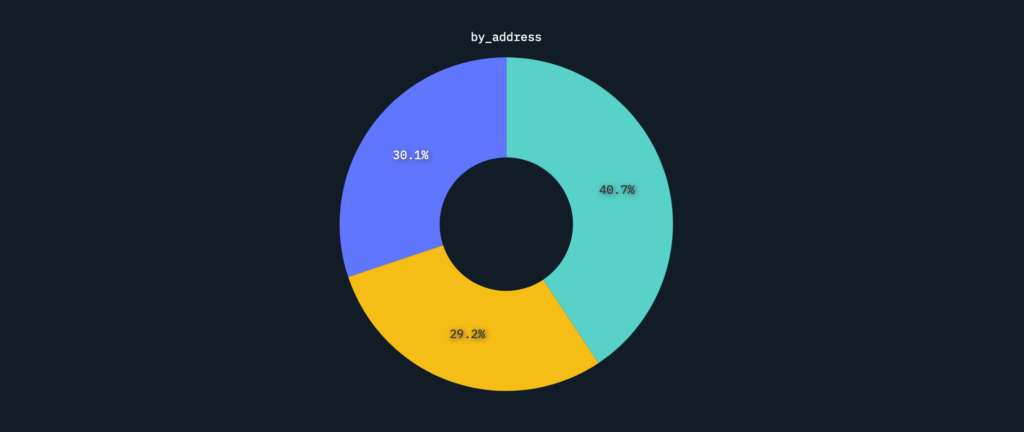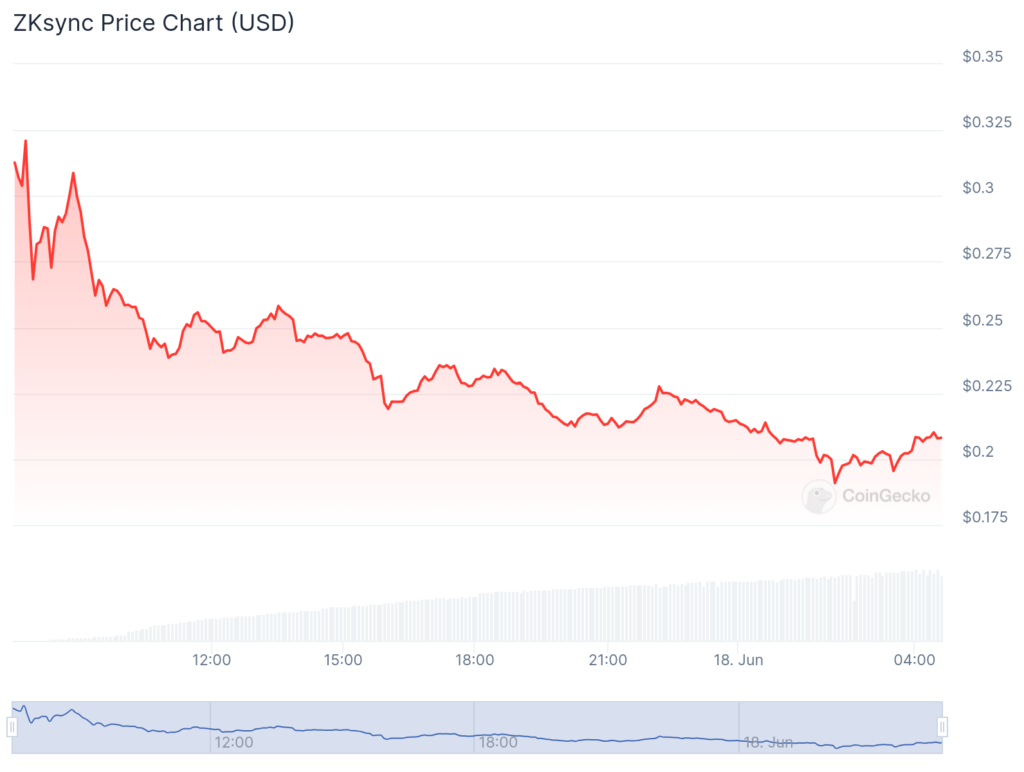The data covered the “top 10,000 addresses” that received zkSync’s new ZK token, though that only makes up 1.4% of the total wallets eligible for the ZK airdrop.
The price of ZK has fallen by 34.5% since its introduction, as nearly half of the top wallets that received the new zkSync (ZK) token on Monday have already sold their entire allocation in the airdrop.
According to data from blockchain analytics firm Nansen, nearly 41% of tracked addresses sold their entire airdrop, while 29.2% sold at least a portion of their tokens. Over 486 million ZK was sold in total across both cohorts.
Over 30% of the top receiving addresses have maintained their ZK tokens.
The data encompassed the “top 10,000 addresses” that received the ZK airdrop, even though it only accounts for approximately 1.4% of the 695,232 wallets that zkSync stated were eligible for the 3.7 billion ZK tokens distributed last week.

Earlier on June 17, the nonprofit zkSync Association, established by zkSync developers Matter Labs last week, reported to X that 45% of the tokens were claimed in under two hours. The high volume of traffic caused the initial network issues.
According to data collected by Matter Labs data scientist Landon Gingerich, nearly 75% of the airdropped ZK has been claimed by over 491,000 wallets as of publication.
According to CoinGecko, ZK has experienced a 34.5% decline in the past day. It peaked at $0.32 shortly after its launch but has since fallen to approximately $0.20.

The token has a fully diluted value of over $4.4 billion and a total supply of 21 billion.
However, its market capitalization has plummeted from its peak of over $1.1 billion shortly after its launch, as only 17.5% of its total supply is presently available on the market. Today, it is approximately $772 million.
After zkSync defended itself from criticism of its airdrop criteria, which some believe were too lax with its anti-Sybil measures, a significant sell-off by top wallets occurred. These measures prevent entities from using multiple wallets to game airdrops.
The project updated a document on June 15 to assert that aggressive Sybil filtering could have falsely identified real users. Consequently, it selected a “unique airdrop design” that it claimed was intended to reward the highest number of organic users.












